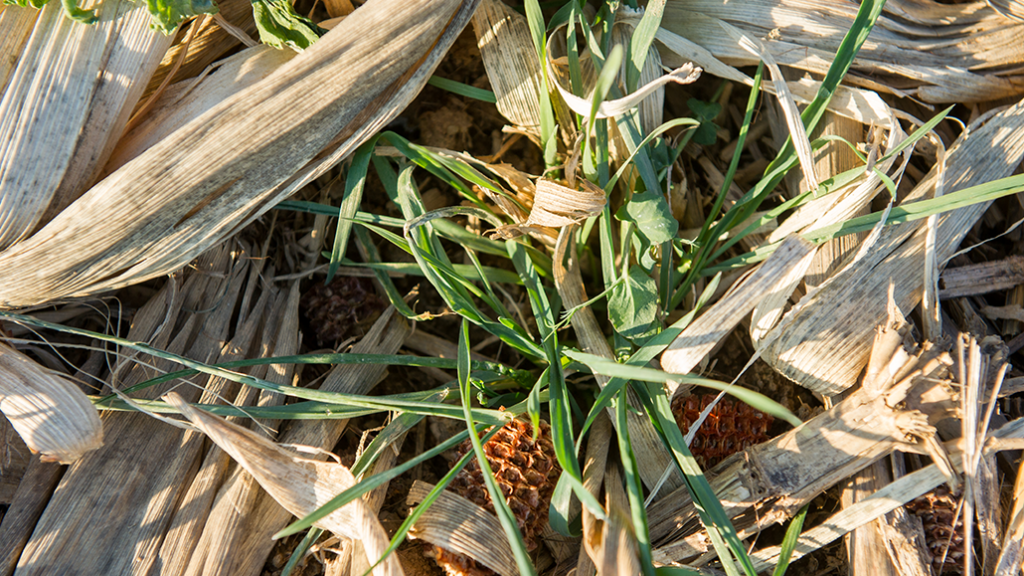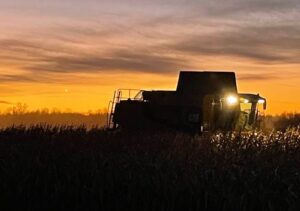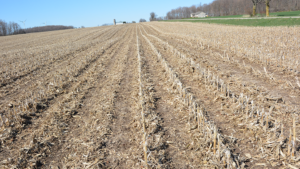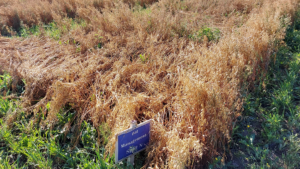Agricultural climate solutions
NEW COST-SHARE PROGRAM FOR ONTARIO PRODUCERS

AGRICULTURE IS A leading sector in employing practices and measures to manage our air, soil and water — and now, growers can tap into the new On-Farm Climate Action Fund (OFCAF) cost-share program to enhance their on-farm efforts to mitigate climate change.
The new program is part of the Government of Canada’s Agricultural Climate Solutions initiative and was first announced in the 2021 federal budget with an allocation of $200 million to help farmers tackle climate change. Ontario’s portion of the budget — $25 million — will be administered by the Ontario Soil and Crop Improvement Association (OSCIA).
“When it comes to caring for our climate and environment, Ontario farmers have been adopting and following recommended best practices for years,” says Warren Schneckenburger, president of OSCIA. “This new program can help capitalize and expand on their efforts and practices to manage climate change.”
Under OFCAF, farmers can apply for cost-share funds (65 per cent of approved project costs) to support best management practices (BMPs) that reduce greenhouse gas (GHG) emissions and increase carbon sequestration. Adopting these BMPs will also benefit farmers as they invest in their farm’s soil health to improve long-term productivity, profitability, and sustainability. Specific BMPs supported under the program include in-field nitrogen management, cover cropping practices, and establishing or expanding rotational grazing systems.
Since the program was first announced in February 2022, OFCAF will accept retroactive eligible costs for implementing new practices incurred from February 15, 2022. Barb Caswell, senior operations coordinator with OSCIA, says eligible BMPs meet the Government of Canada’s climate change objectives. These include trying nitrogen stabilizers or in-field biological inoculants for the first time, leaving a cover crop over winter where it has always been terminated in the fall, or setting up permanent perimeter and cross-fencing to establish new rotational grazing systems.
The first intake of the program opened in August 2022. Additional intakes are expected to be scheduled throughout the program, which runs until March 2024, and will be available at www.ontariosoilcrop.org. The website also includes full OFCAF application details and resources for applying.
NEW PROGRAM DESIGN
“We’re really excited about this new program and helping farmers meet the specific goals of our funding partners,” says Caswell. “OFCAF also gave us an opportunity to take a new approach to delivering cost-share funds to Ontario farmers.”
Before OSCIA rolled out OFCAF, they consulted farmers, certified crop advisors, commodity groups, OSCIA field staff, and others to determine the best approach to deliver the program. Conducting focus groups, OSCIA sought to identify challenges associated with cost-share programs and how to meet the needs of farmers and the funding partners. The result was a new program approach that focuses on helping farmers capitalize on existing practices and opportunities, like expanding BMPs across new acres and participating in industry knowledge transfer events to learn more about the practices they are implementing from industry experts and fellow farmers.
“We really want to help ensure success, after all, farmers are making their own investments to try new on-farm practices,” says Caswell, explaining that while other funding programs often require farmers to complete an education component to be eligible to apply, OFCAF has built this requirement into later phases of the project, after application approval, to encourage knowledge transfer and experience sharing. OSCIA will be developing an approved list of industry events that focus on OFCAF objectives and may include crop tours, webinars, and twilight events.
The option to apply for retroactive costs as far back as February 15, 2022, is also a new feature of the program, something Caswell says supports the fact that farmers may already be implementing some of the eligible BMPs.
“We recognize farmers are already doing so many great things to address climate change, so we’ve created eligibility opportunities for basic practices and for those farmers who are already ahead of the curve,” says Caswell. “The program is designed to be simple and straightforward and is targeted to farms of all sizes.”
The new OFCAF program enables farmers to try new practices, expand on new BMPs, or try different approaches on new acres. “For example, if you’re already cover cropping select acres, you can apply to expand that BMP to your entire farm by practicing it on acres you haven’t yet. Or, try nitrogen stabilizers for the first time,” explains Caswell.
The new program’s success will be measured by the number of acres impacted by the three categories and objectives — nitrogen management, cover cropping and rotational grazing practices. “This is a short list of BMP categories but holds lots of opportunities, and we hope most farmers will find something that fits for them,” says Caswell.
ON-FARM CLIMATE ACTION FUND
The new On-Farm Climate Action Fund (OFCAF) cost-share is now open to eligible Ontario farmers. Cost-share funding is available at 65 per cent of approved project costs. Project categories and eligible projects include:
- Cover cropping — cost-share funding 65 per cent up to $20,000 for farmers who want to undertake a new practice on their farm to support the planting of cover crops left undisturbed over the winter.
- Nitrogen management — cost-share funding 65 per cent up to $30,000 for farmers who want to implement a new practice within their field-based nitrogen management activities.
- Rotational grazing practices — cost-share funding 65 per cent up to $20,000 for farmers who want to implement new fencing and livestock watering system infrastructure to establish or expand rotational grazing systems.
For more information, visit www.ontariosoilcrop.org. •


























